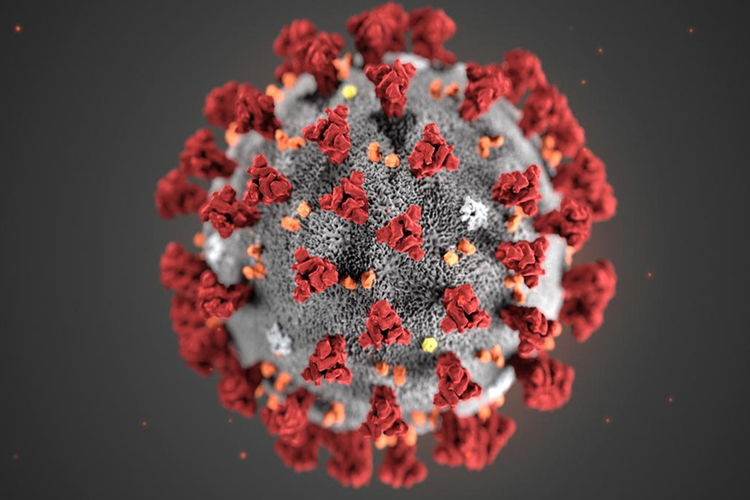We highlight the prospective article published in the journal Advanced Materials Letters, by Dr Semino, professor in the Department of Bioengineering at IQS, along with other researchers from various countries, under the title “Current Scenario of Coronavirus Pandemic”.

Image of SARS-CoV-2
The large number of articles currently being published in scientific journals about SARS-CoV-2 reflect society’s great concern about the pandemic and researchers' commitment to providing solutions that make it possible to address this challenge, from understanding the virus's mechanisms of action to therapies for treating the sick and models for prevention and eradication.
We are all now aware that the virus causes infectious diseases that affect the respiratory and gastrointestinal systems. Symptoms range from a typical cold to severe difficulties and pneumonia. The virus spreads primarily through contact between people, doing so rather quickly. The major concern in countries around the world is being able to cope with an increase in seriously ill patients in their respective healthcare systems.
Current practices to control the spread of the virus and reduce the number of infections are based on isolation and social distancing between people. Other practices include hygiene measures, carrying out mass diagnostic testing to a greater or lesser degree, depending on the country, and appropriate quarantine periods. Additionally, intensive work is being done on clinical studies of new and existing drugs to respond to the various severe symptoms. At the same time, other researchers are trying to develop an effective vaccine in the shortest possible time.
We are pleased to highlight the prospective article[i] published in the journal Advanced Materials Letters, by IQS Department of Bioengineering professor Dr Carlos Semino along with other researchers from various countries, under the title "Current Scenario of Coronavirus Pandemic.” This group of researchers makes up the Consortium created by the International Association of Advanced Materials (IAAM) as a forum for discussion on high-tech healthcare.
In the article, the scientists assess the global situation, the efforts of the scientific community, and an outlook on the coronavirus pandemic. The article stresses that there is an urgent need for preventive models and policies to implement them at a global level. On the one hand, the gradual decrease in the cost of genome sequencing enables real-time trend, diagnosis, and monitoring studies that are essential for the rapid detection of outbreaks and understanding their mechanism of action at the same time. On the other hand, digitisation is opening up new opportunities for faster and more accurate diagnosis models based on globally connected personal devices. These models are therefore based on integrating three technologies from different fields: the latest technologies in biosensors, the Internet of Things (IoT), and Artificial Intelligence (AI).
To conclude, sharing knowledge and technology to combat the challenges posed by the coronavirus in a more effective way is what is essential.
Dr Nuria Vallmitjana
Director of IQS Tech Transfer
[i] Mishra A., Patra S., Shukla S.K., Pandey P., Shukla Y., Osmera P., Yadav P., Pandey M., Gupta R., Molina F., Semino C.E., Tiwari A., “Current Scenario of Coronavirus Pandemic”, Adv. Mater. Lett. 2020, 11(4), 20041494










